Leadership is one of the most ancient concepts. Surprisingly, it’s also one of the most fluid.
While some people view leadership as the ability to think creatively and give direction, others consider it as an inborn talent in getting people of diverse interests to rally behind a common cause.
But despite its many definitions, the general consensus is that leadership requires certain skills and expertise. To master these skills, you can enroll in leadership classes, attend leadership seminars, or invest in some of the most informative leadership books ever written.
In this article, we shall highlight the best leadership books worth adding to your reading list.
1. 7 Habits of Highly Effective People
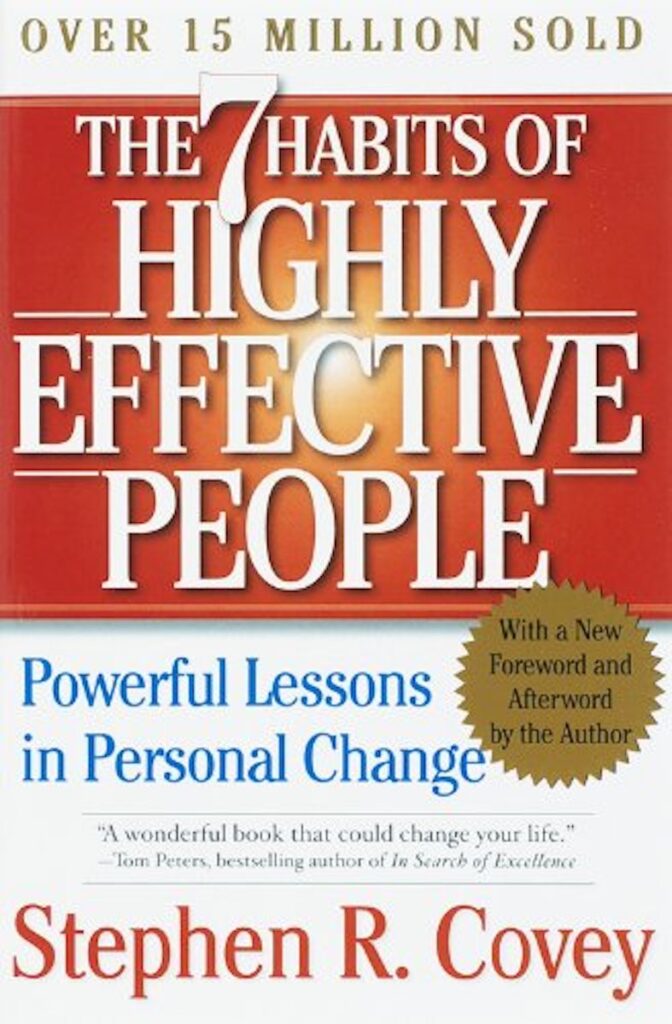
Author: Stephen Covey
Publisher: Free Press
Year Published: 1989
Famous Quote: Most people do not listen with the intent to understand; they listen with the intent to reply.
7 Habits of Highly Effective People is unquestionably one of the best leadership books of all time. First published in 1989 by Free Press, this book takes a principle-centered approach to leadership by addressing some of the healthy habits that any aspiring leader should endeavor to inculcate.
According to the author, Stephen Covey, the following are the seven habits of highly effective leaders:
i. Being proactive
ii. Beginning with the end in mind
iii. Putting first things first
iv. Always thinking in the direction of a win/win scenario
v. Seeking to understand first, then to be understood
vi. Synergizing every resource in your hands
vii. Sharpening the saw
What makes 7 Habits of Highly Effective People a must-read is how extensively Covey tackles each of these healthy habits. And besides the fundamentals, the author also addresses various other critical aspects of leadership. Examples include time management, teamwork, service to those under your jurisdiction, the need to apply justice and fairness in every decision, and the importance of upholding human dignity and integrity in every pursuit.
2. Wooden on Leadership: How to Create a Winning Organization
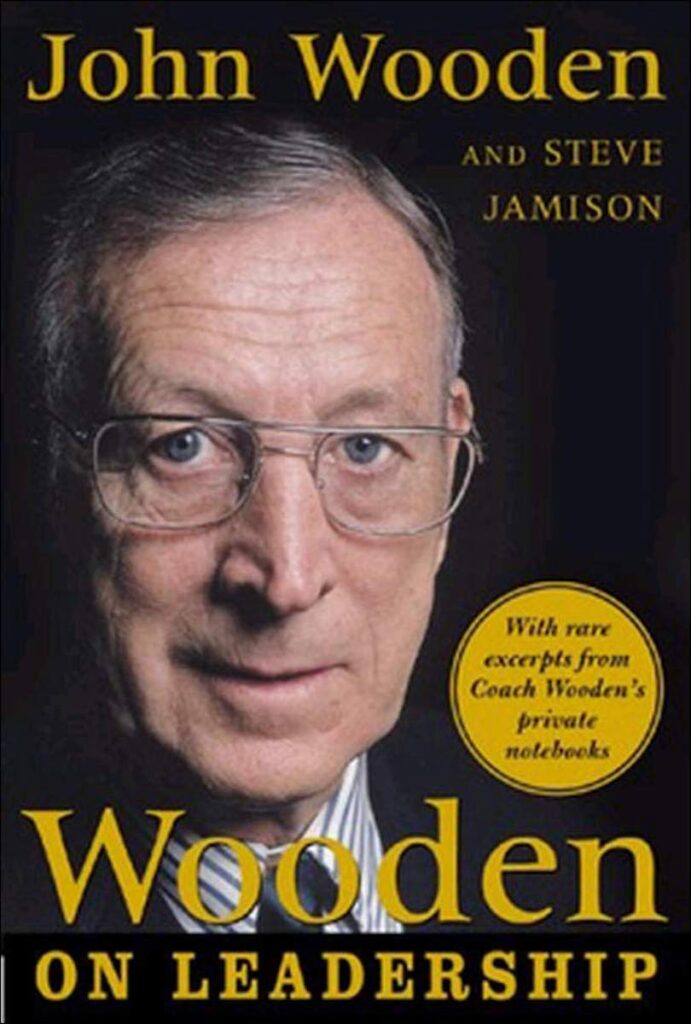
Author: John Wooden
Publisher: McGraw-Hill Professional Publishing
Year Published: 2005
Famous Quote: Remember that success can take months—or years—to achieve but can be undone in minutes.
Wooden on Leadership is a Wall Street Journal Bestseller authored by one of America’s most celebrated business coaches, John Wooden. Wooden unpacks some of the basic traits that every effective leader should possess, including team spirit, enthusiasm, loyalty, and determination.
The book also outlines how a leader can synergize their physical, mental, and emotional strengths to bring out the best in his team. Plus, there are additional insights from John Wooden’s very own ‘12 Lessons in Leadership,’ as well as his ‘Pyramid of Success.’
3. How to Win Friends & Influence People
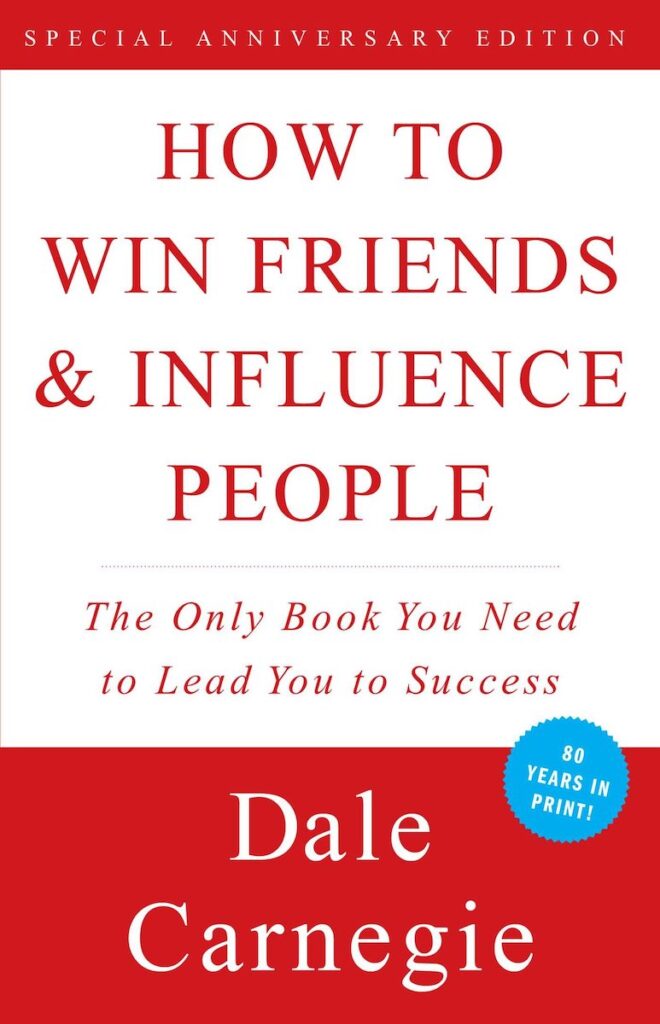
Author: Dale Carnegie
Publisher: Simon & Schuster
Year Published: 1936
Famous Quote: You can make more friends in two months by becoming interested in other people than you can in two years by trying to get other people interested in you.
Another bestseller on this list, How to Win Friends & Influence People is all about helping you to grow your social capital. Dale Carnegie outlines several practical steps that you can take to win friends and meaningful connections, then leverage your social capital to achieve your maximum potential.
Some of the highlights in the book include:
• 6 ways to make people like you
• 12 ways to win people to your way of thinking
• 9 ways to change people without arousing resentment
4. Primal Leadership: Realizing the Power of Emotional Intelligence (Leading with Emotional Intelligence)
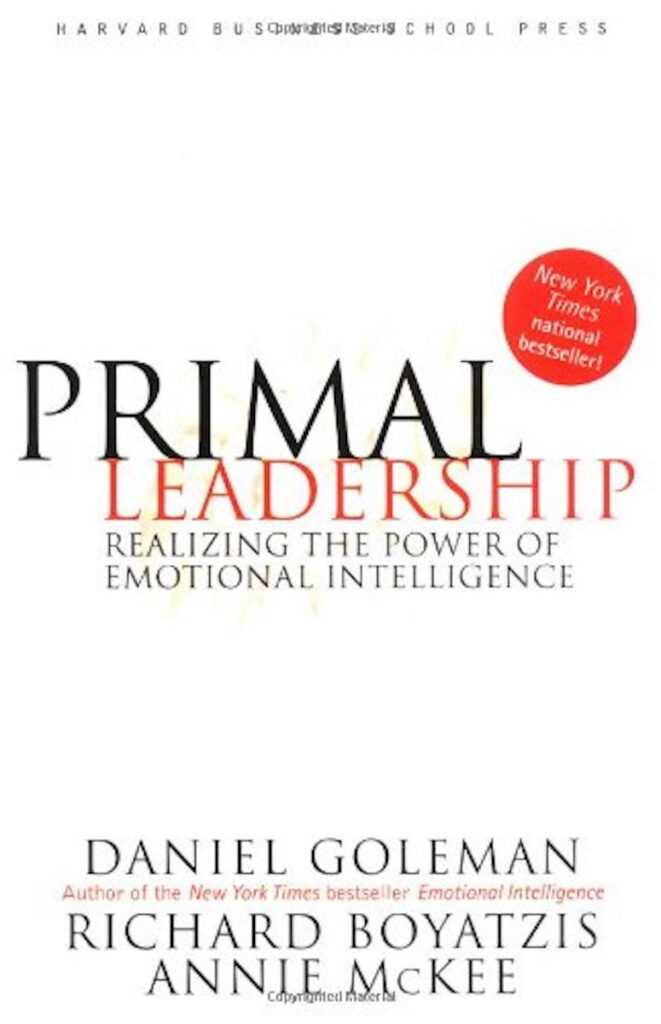
Author: Daniel Goleman
Publisher: More Than Sound
Year Published: 2011
Famous Quote: Not that leaders need to be overly “nice”; the emotional art of leadership includes pressing the reality of work demands without unduly upsetting people.
There has always been a raging debate as to whether emotional intelligence has any place in the corporate world. Well, Primal Leadership might just help to put that debate to a permanent rest.
While many leadership books focus on intelligence quotient (IQ), academic qualifications, and technical skills, this book proves that success in any career also depends on emotional intelligence. The book contains inputs from emotional intelligence experts like Richard Boyatzis and Annie McKee, which adds to its overall credibility.
5. Good to Great: Why Some Companies Make the Leap…And Others Don’t
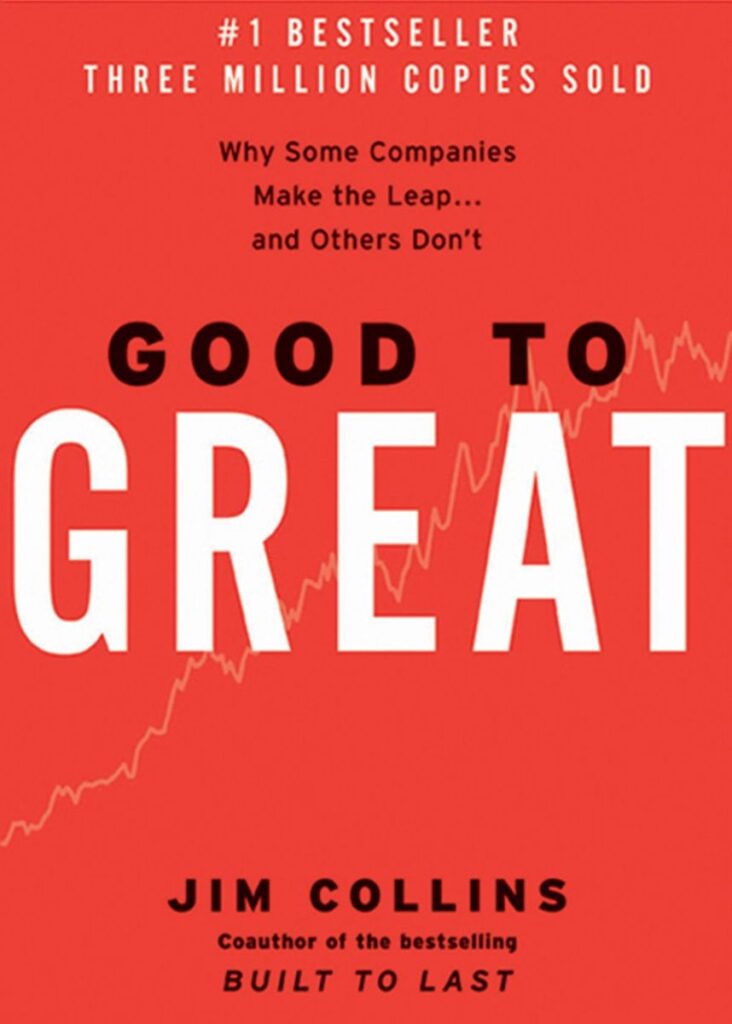
Author: James C. Collins
Publisher: HarperCollins
Year Published: 2001
Famous Quote: The purpose of bureaucracy is to compensate for incompetence and lack of discipline.
Living in the comfort zone is one of the most grievous mistakes any leader can ever make. It’s even worse for corporate leaders who must always take progressive steps to stay ahead of competition.
When many leaders achieve tremendous success, they end up wasting a great deal of their time wallowing in the glory of their accomplishments. So much that they only wake up from their self-imposed slumber when their competitors have gained an unassailable edge over them.
Now, this is the primary concept that Good to Great attempts to address. Throughout the book, James C. Collins identifies various key characteristics that every business or company requires to move beyond its comfort zone.
He summarizes those features as follows:
i. Level 5 Leadership
Leaders who lead with humility but are driven by a sincere desire to do what’s in the best interest for their companies.
ii. First Who, Then What
Getting the right people for the job, then trying to figure out how to make the most out of their skills, experiences, and talents.
iii. Confront the Brutal Facts
Facing the brutal (which are often the worst) parts of every situation, but with a sober and realistic mind.
iv. Hedgehog Concept
Understanding the three overlapping circles of any leader, namely, your passions, strengths, and motivation.
v. Culture of Discipline
Remaining true to your company’s vision and mission by inculcating a strong work ethic.
vi. Technology Accelerators
Leveraging technology to stimulate and accelerate growth.
vii. The Flywheel
Taking advantage of the compounded effects of small incentives.
6. Start with Why: How Great Leaders Inspire Everyone to Take Action
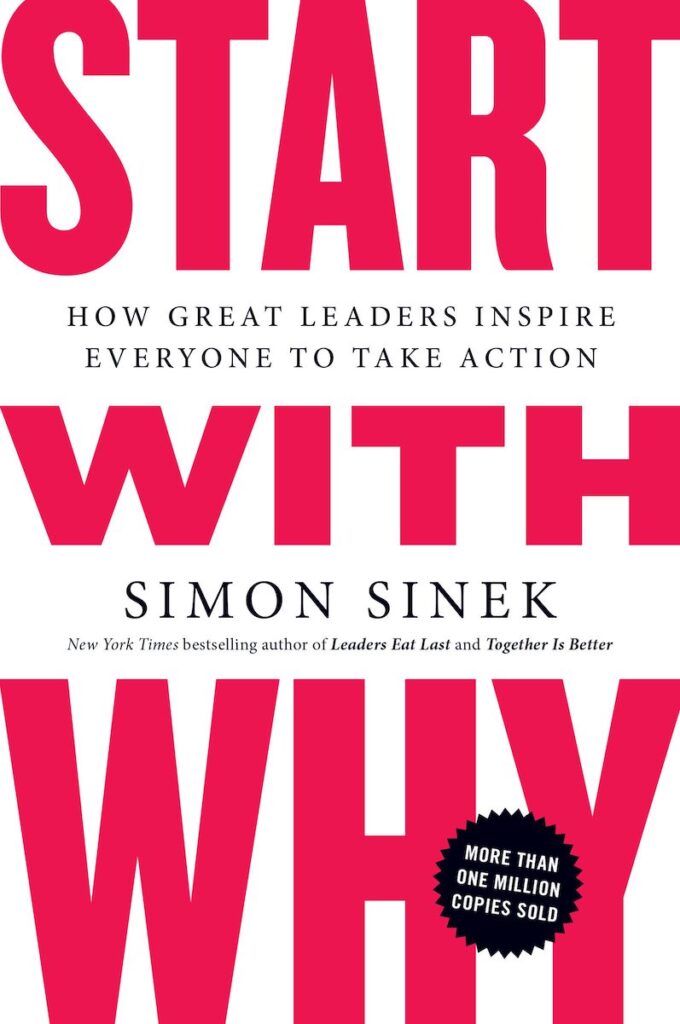
Author: Simon Sinek
Publisher: Portfolio
Year Published: 2009
Famous Quote: Great companies don’t hire skilled people and motivate them, they hire already motivated people and inspire them.
Start with Why by Simon Sinek is a book that raises certain fundamental questions why some leaders fail whereas others succeed.
Some of those questions include:
• Why are some people and organizations more innovative, more influential, and more profitable than others?
• Why do some command greater loyalty from customers and employees alike?
• Even among the successful, why are so few able to repeat their success over and over?
In the book, Sinek admits that some of the world’s most influential leaders, such as the Wright Brothers, Martin Luther King Jr., and Steve Jobs, were drawn from various walks of life. However, he goes on to prove that all these leaders started with ‘Why.’
7. Leaders Eat Last: Why Some Teams Pull Together and Others Don’t
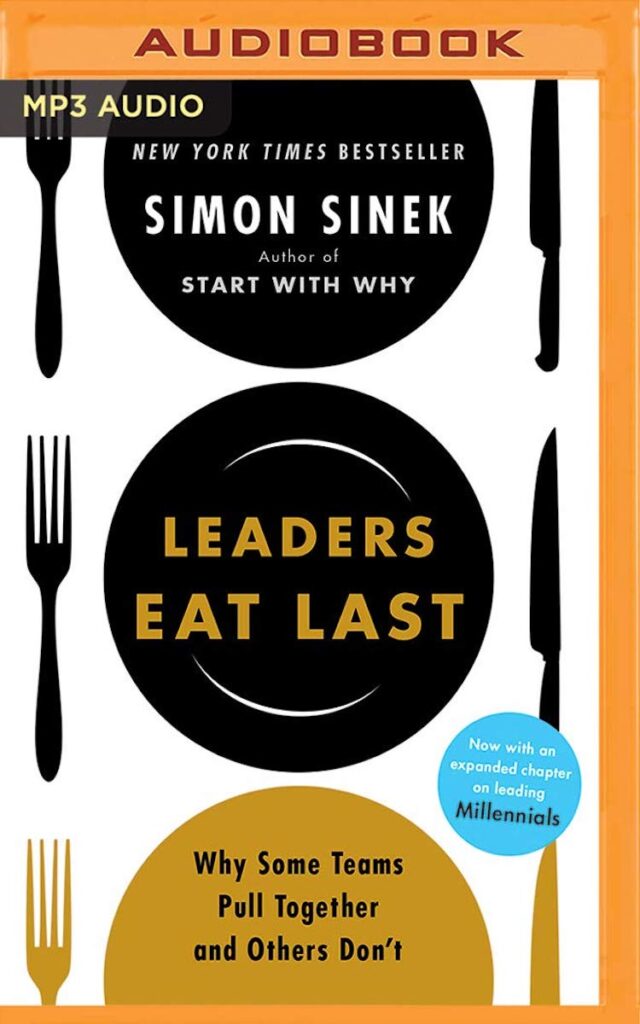
Author: Simon Sinek
Publisher: Penguin Publishing Group
Year Published: 2014
Famous Quote: You can easily judge the character of a man by how he treats those who can do nothing for him.
Leaders Eat Last is another great publication by Simon Sinek. Here, Sinek attempts to emphasize that employees are more productive when they work in environments that give them a sense of personal fulfillment.
Sinek also addresses the significance of fostering a working environment where all the members of your team trust one another. He argues that where there is trust, individual employees would be willing to put their lives on the line for the common good of the team.
And on why some teams pull apart, the author cites reasons like mistrust, infighting, and staff fragmentation.
8. The 21 Irrefutable Laws of Leadership: Follow Them and People Will Follow You
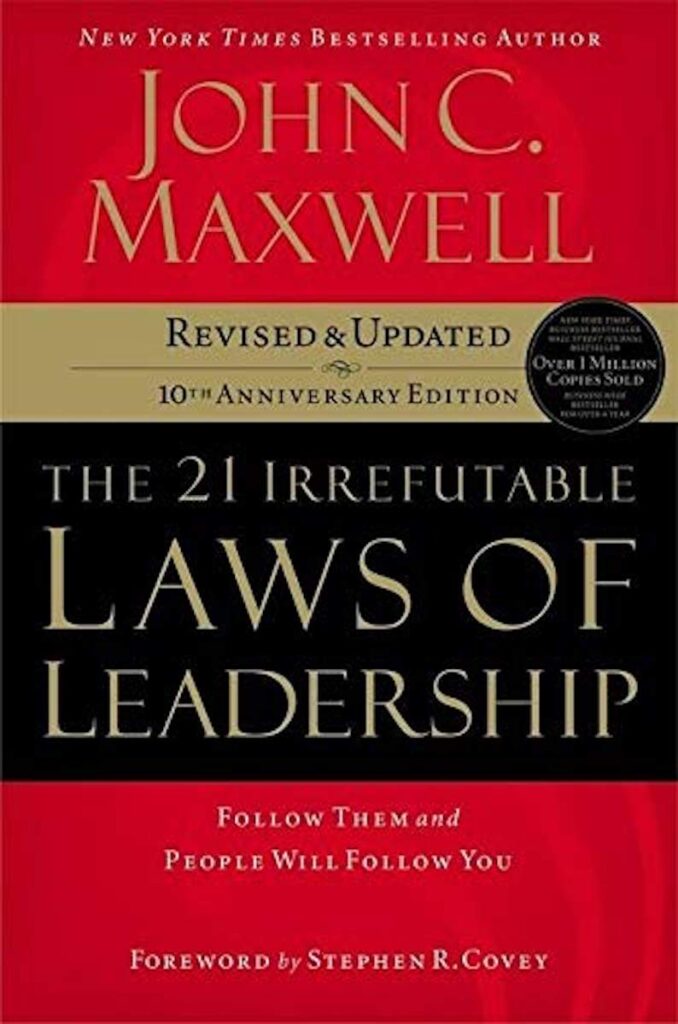
Author: John C. Maxwell
Publisher: HarperCollins Leadership
Year Published: 2007
Famous Quote: If you can’t influence people, then they will not follow you. And if people won’t follow, you are not a leader.
The 21 Irrefutable Laws of Leadership introduces what the author believes are the ultimate laws for any ambitious leader. Of notable mention is The Law of the Lid, which argues that there’s a limit to everyone’s potential.
However, John Maxwell goes on to emphasize that this limit mostly comes down to our leadership ability and style. And that if we can only expand our leadership abilities, we’ll be able to increase our spheres of influence.
Other leadership laws addressed in the book include:
• The Law of Influence
• The Law of Process
• The Law of Navigation
• The Law of Addiction
• The Law of Solid Ground
• The Law of Respect
• The Law of Intuition
• The Law of Magnetism
• The Law of Connection
• The Law of The Inner Circle
• The Law of Empowerment
• The Law of the Picture
• The Law of Buy-In
• The Law of Victory
• The Law of Big Mo
• The Law of Priorities
• The Law of Sacrifice
• The Law of Timing
• The Law of Explosive Growth
• The Law of Legacy
Conclusion

Whether you’re an aspiring leader or already hold an influential position in your company, country, or community, you’ll find these leadership books worth your time. Each book takes a unique approach to leadership by addressing some of the fundamental traits and healthy habits that every successful leader should have.

